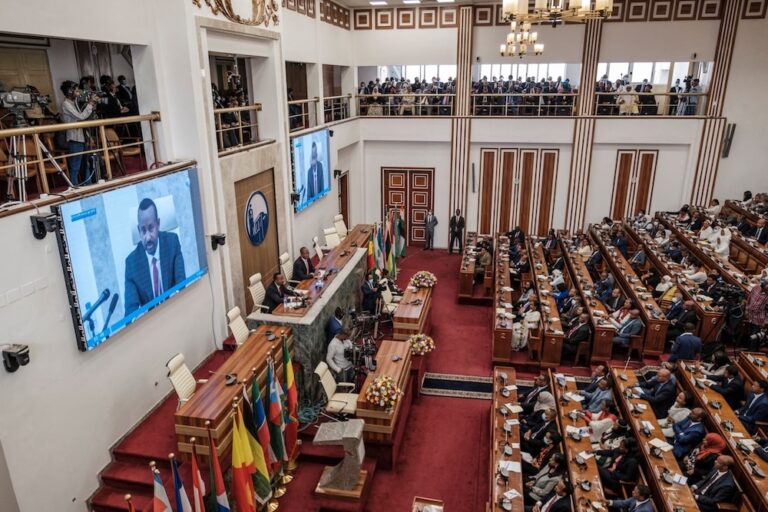A number of African countries have passed access to information legislation, but challenges of implementation remain.
The last decade has witnessed a rapid increase in the adoption of Access to Information (ATI) laws throughout Africa, with only one law passed in 2000 to 11 in 2013. But each country has experienced varying levels of implementation, demonstrating a need for greater regional guidance.
South Africa has the longest experience in implementing ATI legislation on the continent, after passing the Promotion of Access to Information Act in 2000. According to the 2011/2012 implementation report, 24,857 requests were filed to national government departments during the period. Ordinary South Africans, sometimes with support from organizations such as the Open Democracy Advice Centre (ODAC), have used the ATI law to realize their right to housing, education, portable water and clean environment.
The implementation of Nigeria’s ATI legislation, passed in 2011, has been swift. In the two years since its adoption, the courts have played a pivotal role by upholding citizens’ right to information in almost all cases brought to its attention, with 32 public bodies filing reports on implementation in 2012. This should be a lesson for countries like Uganda, where no public body has reported on implementation since its law was adopted in 2005. Meanwhile, Liberia’s Freedom of Information (FOI) law, adopted in October 2010, could not be fully implemented until the appointment of Information Commissioner Mark Bedor-Wla Freeman. In March 2013, the African Freedom of Information Centre (AFIC) met in Monrovia, Liberia, with Commissioner Freeman, who disclosed that his office had yet to be resourced to oversee implementation.
Three French-speaking countries – Guinea-Conakry, Niger and Tunisia – have adopted ATI laws. Though implementation has not taken place beyond awareness-raising, these laws have re-energized campaigns in other French-speaking countries, with Morocco and the Democratic Republic of the Congo now having draft laws and vibrant FOI coalitions exist in Mali and Senegal.
Ethiopia’s ATI law, adopted in 2010, went operational in January 2012. Its oversight body, the Ethiopian Institution of the Ombudsman (EIO), has been preparing supplementary legislation which will include a code of practices, guidelines, manuals and training documents.
Challenges to implementation of some FOI laws on the continent have been attributed to low awareness. An AFIC 2012 study in Uganda revealed that 68 percent of public officers interviewed were not aware of the existence of the country’s ATI law. This same study and others have also shown that challenges to implementation are more as a result of inherent weaknesses in many laws on the continent. Uganda’s law, for example, does not provide for an independent oversight body, while Guinea-Conakry’s law does not guarantee “public interest override” in the disclosure of exemptions and Angola’s has no whistleblower protection provision.
These shortcomings have given rise to a whole new set of initiatives on the continent aimed at improving existing laws or ensuring new laws on the continent are of better quality. Firstly, we have the Model Law on Access to Information developed by the Special Rapporteur on Freedom of Expression and Access to Information and adopted by the African Commission on Human and Peoples’ Rights (ACHPR) in February 2013. It not only demonstrates the African Union’s (AU) commitment to promoting the right to information in Africa, but will provide guidance for development of ATI laws on the continent.
Secondly, the African Platform on Access to Information (APAI) Declaration adopted in Cape Town, South Africa, in September 2011, outlines 14 key principles of access to information in Africa. These principles set guidelines for development or amendment of FOI laws and will certainly raise the standard of FOI legislations on the continent.
AFIC and its members have used the model law in its draft form – together with the APAI Declaration – to analyse and provide inputs into draft freedom of information bills for Kenya, Zambia and Botswana. It was also used in analysing ATI laws in Niger, Guinea-Conakry, Zimbabwe and Angola.
Concerns about national security are the most common grounds for denial of access to information in Africa. For this reason, AFIC is part of an international project to develop principles on national security and the right to information to ensure citizens have the fullest possible access to information on national security issues.
Peter Nsenkeng is the Programme Officer at the Africa Freedom of Information Centre (AFIC), based in Kampala, Uganda.



